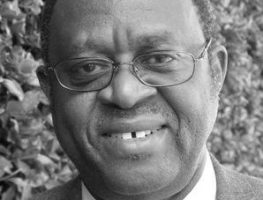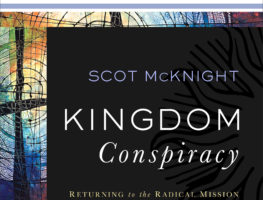In my last article, “Navigating Transgender Bathrooms for the Kingdom (Gender and the Gospel, Part 1),” I argued that the church needs to open up space for a new navigation of gender in our culture. We must resist joining into the various antagonisms of the culture’s gender wars. We must resist care-taking for a culture that has left Christianity as its disciplining force. Instead, we should become a community which navigates the gender issues out of who we are in Christ, an arena of the Spirit in a dialogue with the gender issues as we are confronted with them in each context we live. We must resist joining into the various antagonisms of the culture’s gender wars. Click To Tweet
How the Church Navigates
Start With Where We Are
What does such a navigation look like?
As always, we (the Church) start with where we are. Is there any other place?
We, the church, inherit gender constructs (we cannot help it). No one grows up in a genderless society. They are given to us by our parents in some way, negatively or positively. Our contexts initiate us into gender constructs culturally. If we live in Japan, we have different construals of gender compared to if we are living in Nairobi, Kenya or Paris, France or Venice Beach, California. In each case, these constructs have been worked out over time in relation to sociological demands including economy and family.
Remember Who We Are in Jesus Christ
The church itself has hopefully engaged these constructs with who we are in Jesus Christ. For protestants, that has meant mostly through scriptural engagement of some kind. In the midst of these realities, our sociological realities have changed (economy, demands of work, and family to name a few), especially over the last 50 years.
Account for Sin’s Distortions
Add on to this the certainty that sin (via patriarchies, objectification and power) distorts gender constructs and gender relations in and outside the church. And so we, as a community, must discern how to live in, understand, and see gender. Somehow, we must become a discerning community again (instead of a self-preserving community). Beyond our fixation on self-preservation, the Church must become a discerning community again. Click To Tweet
Three Principles for Navigation
As I outline in this forthcoming book, we practice presence, reconciliation, gospel, being with the hurting, the giftings of the Spirit and prayer. This forms communities of discernment, whether they be a community of 2 or 3 or 20 or thirty or more.
I want to suggest three principles (at least) that consistently appear for Christians as we navigate gender in our time as Christians. They are:
1. Gender relations are mutualist
As we engage our current gender constructs, gender relations will overcome hierarchy and be reshaped by mutuality. The entire trajectory of the history of salvation in Scripture teaches us that hierarchy and patriarchy are malformations of sin that take up residence in a culture. All such hierarchy is overturned in Christ.
In Mark 10:42-45 Jesus says in relation to hierarchy and usurping “it shall not be so among you.” In Ephesians 5:21, the apostle Paul says “submit yourselves one to another out of reverence for Christ” and then goes on to re-describe the gender roles in marriage in current day language yet overcoming the patriarchy. He says “wives submit to your husbands” in the common day vernacular, but he transforms this with “husbands love your wives as Christ,” giving up yourselves for her. These gender roles are expressed in terms of mutuality.
Wherever the gospel is proclaimed, where Jesus is pronounced Lord, there is no more usurping. Patriarchy is overturned, and the way gender relations are renewed is through the mutuality, the forgiveness, reconciliation and renewal in Christ. It is now men and women together working always together in the tasks God has given us to pursue in the Kingdom.
We need therefore to become discerning communities that practice mutuality in the ways we lead and discern gender together. 'Wherever the gospel is proclaimed, patriarchy is overturned.' @Fitchest Click To Tweet
2. All antagonisms between genders are overcome in Christ
When we see gender in mutualist ways (as opposed to patriarchal) we realize the amount of brokenness, strife, anger and pain there exists in our world between male and female.
There is much shaming, abuse, and violence done to people who have not fit previous regimes of gender construct. There is resentment and anger.
- A woman has felt shamed because she does not look or felt like this archetype of women that have constantly been paraded before her since she was eight in her church youth group.
- A man or woman was sexually abused.
- A woman or a man was sexualized at any age and feels shame, or knows not how to escape the gaze that has shaped him/her.
- A woman has known only the objectifying sexualizing gaze of men in her workplace and, indeed, at her church.
- A man is embarrassed to discover he is gentle—and this is not “manly”. (Huh?)
These are just a few of the examples of antagonisms/defenses, protections, reactions to being hurt, the excesses of gender imposition.
When the gospel is proclaimed, and Jesus has been made Lord, we see that a space can now be formed to listen, unwind and reorder the world. We see that Christ can bring repentance, forgiveness, reconciliation and healing between genders.
The church is the space where we sit, listen and discern, unwind, forgive and reconcile and allow God to heal by his Spirit. When we are healed, something new can come forth. Difference can be formed not out of war but out of mutuality, not out of antagonism but love and care, not out of objectifying the other but out of true relation. This is a fruit of the Holy Spirit. The church is the space where we sit, listen, discern, unwind, forgive and reconcile. Click To Tweet
3. In (the incarnate) Christ, our physical bodies matter
Lastly, because God has come into the world through the incarnate Christ, Christians always affirm our physical bodies matter. Contra Gnosticism, the physical differences between bodies are not inconsequential to gender. Indeed they are part of it. We therefore must discern in concrete everyday life what these differences, between our bodies as male, female and other, mean for gender. Because God became incarnate in Christ, Christians always affirm our physical bodies matter. Click To Tweet
Culture has always navigated gender via the relation of female and male bodies to the demands of economy, family and community. Generalized realities such as the physical strength of men’s bodies versus women’s bodies have at times organized men to industrialized workplaces and women to the home. At other points in history, women have been the managers of the households (pre-industrialized agrarian societies). The rise of women in the workplace and to leadership of the past 50 years has something to do with the rise of service industries, health care industries and various relational enterprises (through technology etc.) in the economy.
There are controversial differences between men and women’s bodies that have (I suggest) somehow come into play such as hormonal differences, estrogen versus testosterone levels, the way women’s brains work versus men’s. There are of course the differences in bodies pertaining to procreation, having children and the care of children. In all of these cases our bodily differences must not be denied as we navigate gender roles in culture.
Binaries and the Kingdom
Yet even here, there are those who in their bodies do not fit within the dominant cultural forms. Space must be made to acknowledge one’s bodies here as well in transgender and other categories. For instance, we see in Scripture the place of non-binary gendered people who fit within Israel. The development of not only the inclusion of eunuchs in the Kingdom, but them becoming a role to be emulated for the Kingdom (Matthew 19:12) is a helpful study here.
The body of Christ is working out what it means to be male and female within the marriage relationship, work world, and beyond marriage and gender binaries. We must open space to discern what is of God and what is not via the body of Christ, what it means to mutually submit to Scripture, the gifts, and discernment.
We need therefore to become discerning communities, discerning gender in our contexts being careful not to dismiss our bodily differences but asking how do these bodies relate to this situation and our calling to live in Christ’s Kingdom for the world.
I suggest this is what church in the future must look like amidst the navigation of gender we are all faced with in the West. As churches make space for the discerning of gender, how he is healing, where He is taking us, the Kingdom breaks in. We do not make up all gender from scratch, but we make space for people to work out their salvation in fear and trembling. Let the Kingdom break in. As churches make space for the discerning of gender...the Kingdom breaks in. Click To Tweet
Special Note: I believe that the upcoming forum/conference #SheLeads put on by Missio Alliance will be a place to flesh out many of these gender issues. Let us join together, men and women, to discuss this future church! Join me at the #SheLeads Summit Oct 29. Here’s the link!
Also, Sexual ethics and culture is a part of Northern Seminary’s Masters in Theology and Mission. Check it out here.
Special Note on Language: I acknowledge I have resisted using ‘Cisgender’ language in this post to refer to the traditional binary gender of male and female because I suggest this binary must also be opened to being reshaped by the gospel.











Missio Alliance Comment Policy
The Missio Alliance Writing Collectives exist as a ministry of writing to resource theological practitioners for mission. From our Leading Voices to our regular Writing Team and those invited to publish with us as Community Voices, we are creating a space for thoughtful engagement of critical issues and questions facing the North American Church in God’s mission. This sort of thoughtful engagement is something that we seek to engender not only in our publishing, but in conversations that unfold as a result in the comment section of our articles.
Unfortunately, because of the relational distance introduced by online communication, “thoughtful engagement” and “comment sections” seldom go hand in hand. At the same time, censorship of comments by those who disagree with points made by authors, whose anger or limited perspective taints their words, or who simply feel the need to express their own opinion on a topic without any meaningful engagement with the article or comment in question can mask an important window into the true state of Christian discourse. As such, Missio Alliance sets forth the following suggestions for those who wish to engage in conversation around our writing:
1. Seek to understand the author’s intent.
If you disagree with something the an author said, consider framing your response as, “I hear you as saying _________. Am I understanding you correctly? If so, here’s why I disagree. _____________.
2. Seek to make your own voice heard.
We deeply desire and value the voice and perspective of our readers. However you may react to an article we publish or a fellow commenter, we encourage you to set forth that reaction is the most constructive way possible. Use your voice and perspective to move conversation forward rather than shut it down.
3. Share your story.
One of our favorite tenants is that “an enemy is someone whose story we haven’t heard.” Very often disagreements and rants are the result of people talking past rather than to one another. Everyone’s perspective is intimately bound up with their own stories – their contexts and experiences. We encourage you to couch your comments in whatever aspect of your own story might help others understand where you are coming from.
In view of those suggestions for shaping conversation on our site and in an effort to curate a hospitable space of open conversation, Missio Alliance may delete comments and/or ban users who show no regard for constructive engagement, especially those whose comments are easily construed as trolling, threatening, or abusive.